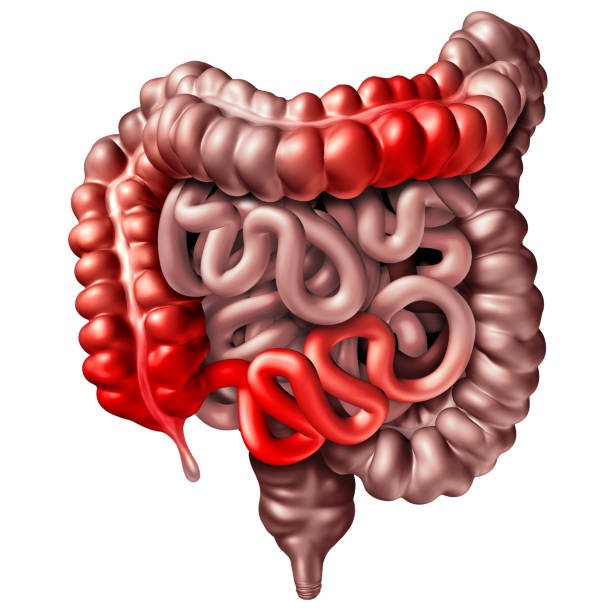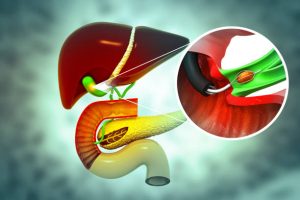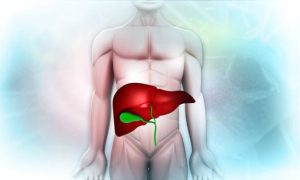
Crohn’s disease or crohn illness medical concept as human intestines with inflammation symptoms causing obstruction as a 3D illustration.
Crohn’s Disease
What is Crohn’s Disease?
Crohn’s disease is a chronic inflammatory bowel disease (IBD) that causes inflammation of the digestive tract, which can lead to severe symptoms and complications. It can affect any part of the gastrointestinal (GI) tract, from the mouth to the anus, but is most commonly found in the ileum (the last part of the small intestine) and the colon.
Types of Crohn’s Disease:
- Ileal Crohn’s Disease: Affects the ileum.
- Colonic Crohn’s Disease: Affects the colon (large intestine).
- Ileocolonic Crohn’s Disease: Affects both the ileum and the colon.
- Gastroduodenal Crohn’s Disease: Affects the stomach and the beginning of the small intestine (duodenum).
- Perianal Crohn’s Disease: Affects the area around the anus.
Main Causes of Crohn’s Disease:
- Genetic Factors: Family history of Crohn’s or other IBDs increases risk.
- Immune System Dysfunction: An abnormal immune response may trigger inflammation in the GI tract.
- Environmental Factors: Diet, smoking, and certain medications can contribute to disease development.
- Microbial Factors: Changes in gut bacteria may play a role in the disease process.
Signs and Symptoms of Crohn’s Disease:
- Abdominal Pain: Often crampy and may be relieved by bowel movements.
- Diarrhea: Frequent, watery stools, sometimes containing blood or mucus.
- Fatigue: Due to chronic inflammation and nutrient deficiencies.
- Weight Loss: Resulting from malabsorption of nutrients.
- Reduced Appetite: Often due to abdominal discomfort.
- Fever: May occur during flare-ups.
- Mouth Sores: Ulcers may develop in the mouth.
Risk Factors for Crohn’s Disease:
- Age: Most commonly diagnosed in adolescents and young adults, but it can occur at any age.
- Family History: A family history of IBD increases risk.
- Smoking: Smokers are more likely to develop Crohn’s disease.
- Certain Medications: Use of nonsteroidal anti-inflammatory drugs (NSAIDs) and antibiotics may increase risk.
- Ethnicity: More common in people of Jewish descent and Caucasians.
How to Prevent Crohn’s Disease:
While there is no sure way to prevent Crohn’s disease, maintaining a healthy lifestyle can help reduce risk:
- Avoid Smoking: Quitting smoking can lower the risk and improve outcomes.
- Healthy Diet: A balanced diet rich in fruits, vegetables, and whole grains can promote gut health.
- Regular Exercise: Staying active may help reduce inflammation.
How Crohn’s Disease is Diagnosed:
- Medical History and Physical Examination: Assessment of symptoms and family history.
- Blood Tests: To check for anemia, inflammation, and nutritional deficiencies.
- Stool Tests: To rule out infections and check for blood.
- Imaging Studies: CT scans, MRI, or X-rays to visualize the intestines.
- Endoscopy: Colonoscopy or upper endoscopy to directly view the GI tract and obtain tissue samples for biopsy.
Treatment for Crohn’s Disease:
- Medications:
- Anti-Inflammatory Drugs: Aminosalicylates (e.g., mesalamine) to reduce inflammation.
- Corticosteroids: To manage flare-ups and reduce inflammation.
- Immunosuppressants: Medications like azathioprine or methotrexate to suppress the immune response.
- Biologics: Targeted therapies (e.g., infliximab, adalimumab) that block specific pathways in the inflammatory process.
- Nutritional Support: Specialized diets or enteral nutrition may be recommended to ensure proper nutrition and manage symptoms.
- Surgery: In severe cases, surgical intervention may be necessary to remove damaged sections of the intestine.
Home Remedies for Crohn’s Disease:
- Dietary Changes: Identify and avoid trigger foods. A low-fiber or low-residue diet may help during flare-ups.
- Probiotics: Supplements may help restore healthy gut bacteria and improve digestive health.
- Stress Management: Techniques such as yoga, meditation, and deep breathing can help reduce stress, which may exacerbate symptoms.
- Hydration: Staying well-hydrated is essential, especially during diarrhea.
Ayurvedic Medicine for Crohn’s Disease:
- Triphala: A traditional Ayurvedic remedy for digestive health that may help balance the gut.
- Turmeric: Known for its anti-inflammatory properties, turmeric may help manage symptoms.
- Ginger: Often used to soothe digestive issues and may help reduce inflammation.
- Amla: Rich in vitamin C, it supports the immune system and digestive health.
Precautions:
- Monitor for signs of complications, such as bowel obstructions or fistulas.
- Regular follow-ups with a healthcare provider for monitoring disease progression and treatment efficacy.
- Be cautious with over-the-counter medications, as some may exacerbate symptoms.
Self-Care Tips:
- Maintain a symptom diary to identify triggers and patterns.
- Follow a balanced diet tailored to your needs, possibly with the help of a dietitian.
- Stay active but listen to your body and adjust activities as needed.
- Join support groups for shared experiences and coping strategies.
Conclusion:
Crohn’s disease is a lifelong condition that requires careful management and monitoring. While there is currently no cure, effective treatments can help control symptoms, maintain remission, and improve quality of life.
Disclaimer:
The information provided here is for educational purposes only and should not replace professional medical advice. Consult a healthcare provider for proper diagnosis and treatment.
Additional Tips:
- Educate yourself about Crohn’s disease and treatment options to make informed decisions.
- Consider keeping emergency contact information handy for healthcare providers familiar with your condition.
- Regularly review and update your treatment plan with your healthcare team based on symptom changes or new research.








